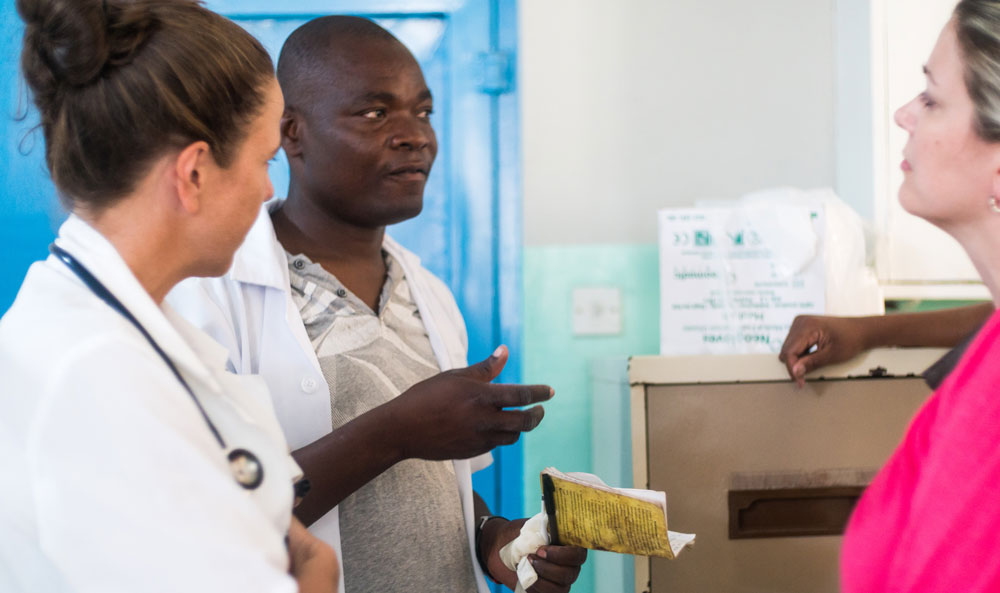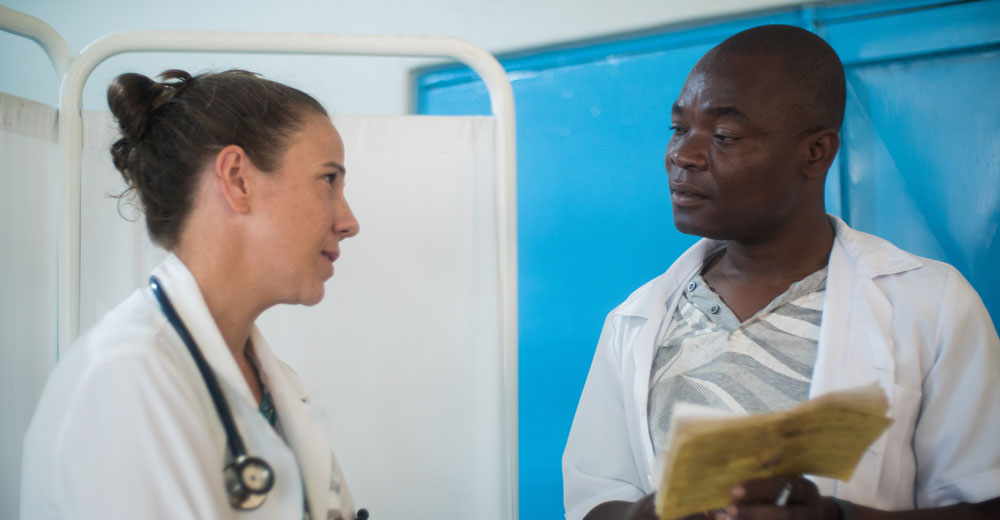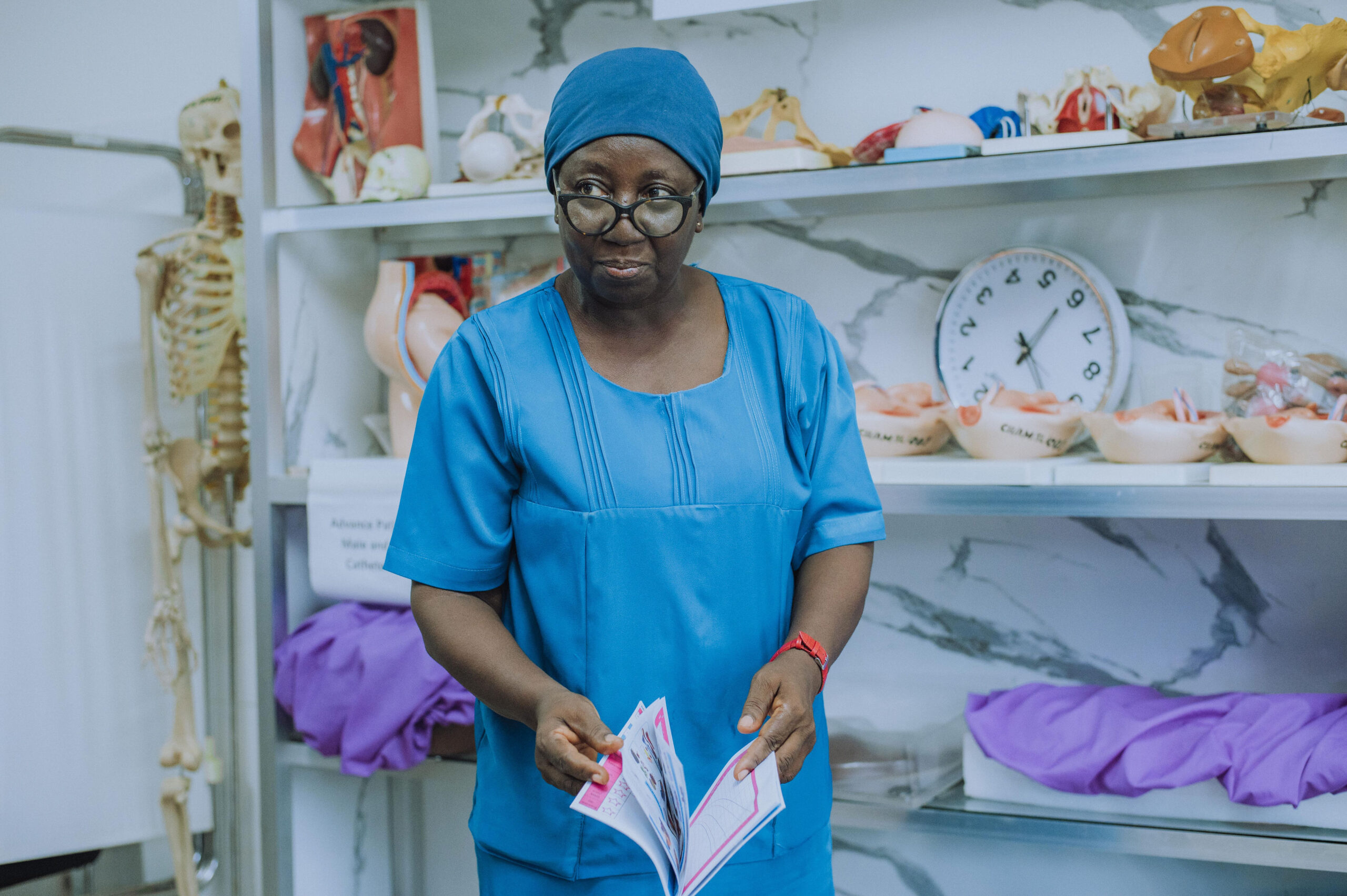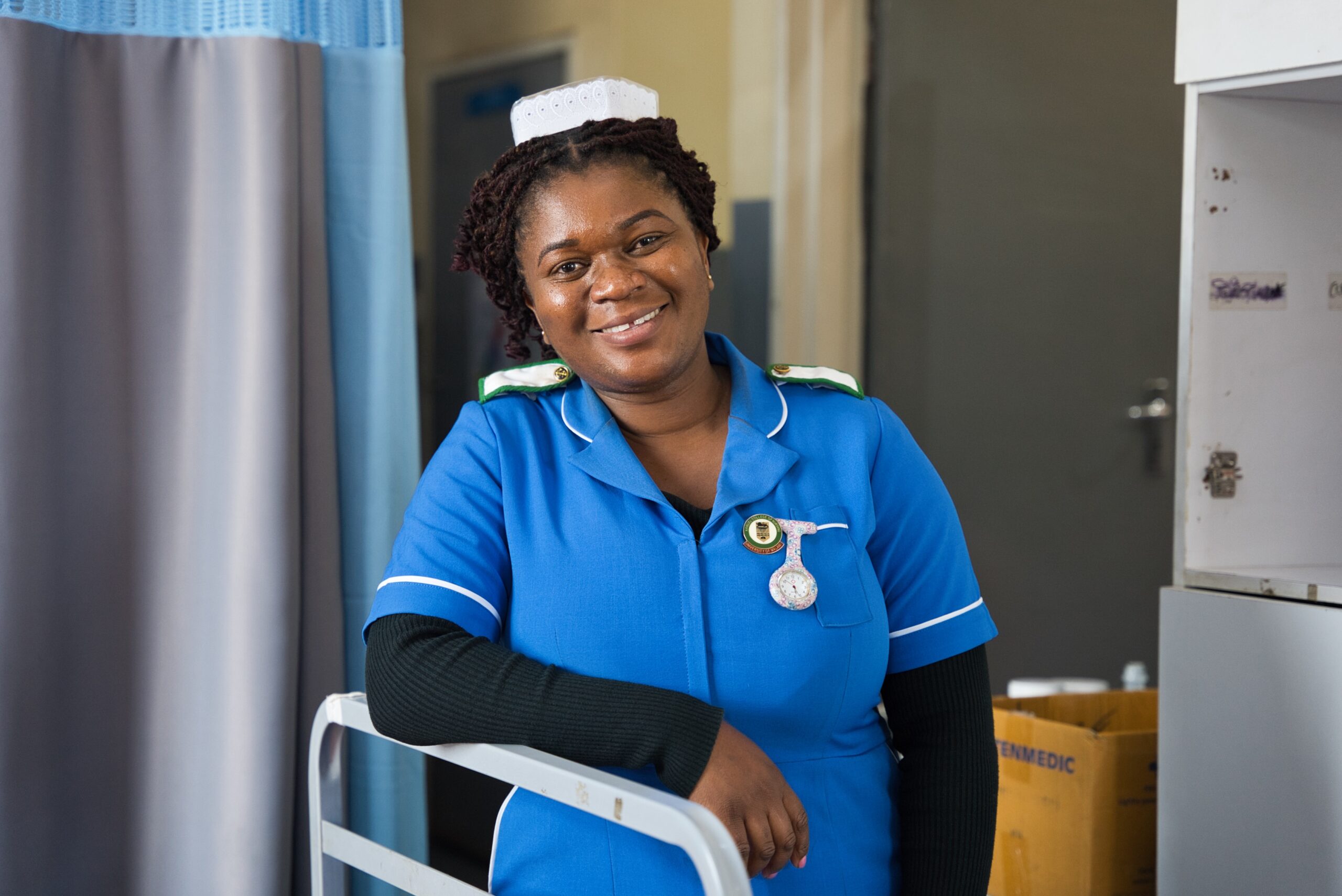Enhancing Family Medicine to Strengthen Malawi’s Health System
Dr. Anna McDonald initially went to Malawi in 2015 through the Global Health Service Partnership (GHSP)—a five-year collaboration between the US President’s Emergency Plan for AIDS Relief (PEPFAR), the Peace Corps, and Seed. Around that time, Seed had partnered with the University of Malawi, College of Medicine (COM) to help establish the first family medicine training program in the country. Led by a former Seed Educator, Elizabeth Hutchinson, the partnership expanded and began working with Swedish Medical Center. Through the collaboration with Swedish, US-based residents can rotate at clinical sites in Malawi alongside Malawian residents, medical students, and hospital staff, where everyone is mentored by a Seed Physician Educator. Anna and Nicholas Napoli, a fellow GHSP alum, were the first educators to take US residents to Mangochi District Hospital.
In 2018, Anna went back to the country as a Seed Educator to continue supporting the expansion of the specialty. During her time in the country, Anna has also worked with many American residents, several of whom have gone on to pursue a career in global health. We caught up with her to talk about her experiences in Malawi, lessons learned, and the importance of family medicine in strengthening the country’s health system.
Could you please tell us a little bit about some of the teaching and training activities that you have been involved in as a Seed Educator so far?
Some of the teaching we do is classroom-based but the large majority of it is done in the day to day clinical encounters we have in the wards with our students. I came to work with the Department of Family Medicine as a Seed Educator four years ago and the longer I’m here, the more I see how the reach of our teaching expands to learners of all types.
Since we are based under the College of Medicine, a lot of the work is focused on the fourth year medical students and our Malawian registrars (family medicine residents) who are in the post-graduate training program. We also work with US residents who come during their global health rotation and spend a month working alongside us. As we are based at a district hospital, which is not traditionally thought of as a teaching hospital, we also work to strengthen collaboration between different cadres of health workers by focusing on a multi-disciplinary, team-based approach to patient care. I may be working with a nursing student, clinical officer intern, qualified clinician, laboratory technician, medical resident, or all of them together at the same time.
In addition to our daily clinical teachings, we organize small workshops to strengthen specific areas of patient care within the district hospital setting. This includes workshops on trauma care, burns management, and a surgical skills course. All of these trainings are designed to focus on the specific clinical areas that the hospital staff say they need enhanced training in. We use local experts to facilitate context-relevant skills and bring together different members of the healthcare workforce to foster a collaborative educational environment.

How are you supporting the expansion of the family medicine specialty in Malawi?
When I think about the work that we have done with the College of Medicine to start the family medicine training program in Malawi, I can’t think of anything in my life that I’ve been more proud of. It has been a difficult journey and there were times that I questioned whether or not we were going to make it, but we have all learned so much along the way. In March 2019, we will graduate our first class of family medicine physicians. It is almost impossible to imagine what they have accomplished in four short years. I am so excited to watch them guide family medicine into its next chapter in Malawi as they hopefully become faculty and take leadership roles in our department.
How do you see family medicine as core to strengthening health systems?
It’s often easier to say what family medicine ISN’T rather than what it is. It is clinical medicine. It is public health. It is education. It is advocacy. It is systems and logistics. It is the glue that holds health systems together. Training doctors to be family physicians puts them closer to the communities where their patients live. It helps them to understand the biopsychosocial approach to healthcare, rather than just the strictly clinical. They take care of an individual person within the context of their family and their community at large.
It is overwhelmingly complex to try and convey the value add of a family doctor because so much of what they do is not easily measured. They try to fill the gaps that prevent patients from getting high quality care wherever they find them, which is often a moving target. One of the fathers of family medicine in Africa, Ian Couper, said at the launch of our program, “Everybody knows the phrase, ‘Jack of all trades, master of none.’ But most people don’t know the rest of it. The real phrase says, ‘Jack of all trades, master of none, is often times better than master of one.’” We are training people to see more than just the patient in front of them—to look at the context and the systems that created the situation so that we can improve them for the future.

In your time in Malawi, what are some of the lessons that you have learned as an educator and a physician?
There are too many to count. I came to Malawi as a teacher, but there is no doubt in my mind that I have learned far more than I have taught. Every day that I work alongside my Malawian colleagues, I become a better teacher, a better clinician, and a better human. I am humbled on a daily basis by the ingenuity and resilience that they bring to work each day, facing incredible odds. I have learned that to be an expert in a clinical field does not mean that you are an expert in that same clinical area applied in a different context. I have learned to let go of my expectations and my ideas and to spend more time listening. All too often, those working in global health come in with their own ideas about what needs to be done and they don’t take time to know the community or to listen to the people who know it best. They assume there is a quick fix to a problem without understanding the complexities of the issue at hand. We know that problems based in communities will find their best solutions within those same communities. My job is not to determine how to fix something, but to empower those who know the context better, and what will work in that environment, to do so themselves. As one of my colleagues told me, “To be in Africa, you have to have big ears and a small mouth.” I think about this every day. I listen twice and speak once. And on the days that I’m really successful, I say nothing at all. I help my colleagues see what is possible, try to find ways to help them reach their goals, support them from the sidelines, and let THEM do the talking.
What moment are you most proud of as an educator?
Every lightbulb moment I have with a student—when I see something click—those are the moments I live for as a teacher. It may be something that seems simple but you know that the student has a new view and a new perspective. But the real magic is when you see them turn around and teach someone else. That’s the power of investing in education. You multiply your impact exponentially when you teach someone else how to do something rather than doing it yourself.
When I first started working in Mangochi, I started training one of the clinical officers on bedside ultrasound. I was by no means an expert, but we learned it together. I have walked into the wards many times to see him teaching others how to use it. Those are some of my proudest moments.

